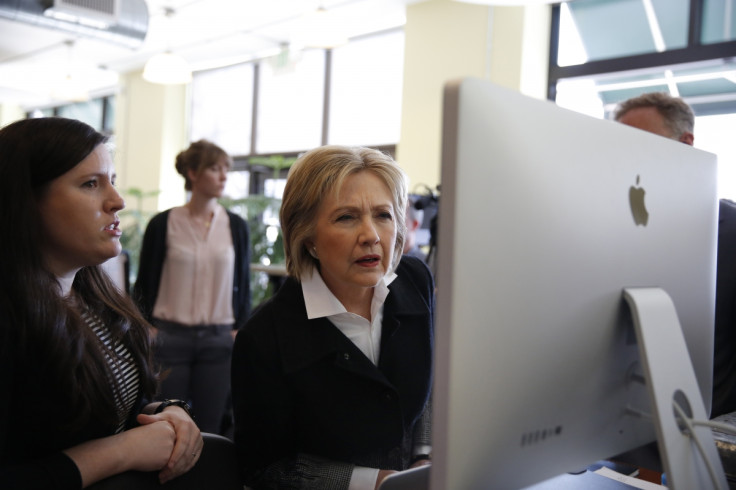Foreign hackers targeting 2016 US presidential candidates says intelligence chief

Foreign cyber-hackers "with a variety of motivations" are targeting this year's US presidential candidates, the nation's top intelligence official warned on Wednesday (18 May). National Intelligence Director James Clapper said the problem is only likely to grow "as the campaigns intensify" at an event hosted by the Bipartisan Policy Center.
Government officials are working with the campaigns to bolster their security as the race for the White House continues.
"We have already had some indications of that, and a combination of DHS, FBI are doing what they can to educate both candidates of potential cyber threats," Clapper said, according to multiple reports. "I anticipate as the campaigns intensify we will probably have more of it."
However, he did not specify details on the attacks, if they have already occurred, or which candidates they were advising.
Clapper's director of public affairs, Brian P. Hale, later clarified the remarks in a tweet:
Following up on DNI Clapper's response to a #BPClive query about cyber attacks on presidential campaign websites: pic.twitter.com/5pycu5QlHW
— Office of the DNI (@ODNIgov) May 18, 2016
Foreign cyberattacks against political candidates, however, is not a new trend.
"Given the intense scrutiny paid to the 2016 campaign, and the broad implications for U.S. foreign policy, it's no surprise that actors are launching cyber attacks against presidential campaigns," said Representative Adam Schiff, the top Democrat on the House of Representatives Permanent Select Committee on Intelligence, in a statement to Reuters.
Earlier in May, the Office of the Director of National Security declassified a document entitled "How to Use the Intelligence Community". The document, which was part of a slideshow that was presented to the incoming Obama Administration shortly after he was first elected, warned that foreign intelligence services had tracked the 2008 presidential election cycle "like no other".
During the 2012 election, US President Barack Obama's and GOP candidate Mitt Romney's campaigns were both targeted by Chinese cybeattacks.
Documents leaked by Edward Snowden in 2013 also revealed that the US has snooped on numerous world leaders' voice and electronic communications, including that of French President François Hollande and German Chancellor Angela Merkel.
By gaining access to the presidential candidates' campaign servers, hackers could potentially find a wide range of sensitive information to exploit, including private contacts, embarrassing communications, classified details or other valuable information.
So far, Anonymous has continued to target Donald Trump, after declaring a cyberwar on the Republican presidential candidate in December 2015. Romanian hacker Guccifer, who first exposed likely Democratic nominee Hillary Clinton's private email address, recently claimed he gained access to Clinton's "completely unsecured" server earlier in May.
According to the InfoSec Institute's score card that evaluates the cybersecurity of several candidates' websites, both Trump and Clinton's campaigns received a "B". Democratic rival Bernie Sanders received a "C".
In April, the White House announced that both parties' nominees will start to receive classified intelligence briefings after the Republican convention in July, months before the general election.
"We have a long-standing practice of briefing each of the major candidates once they are officially designated, and that sort of shifts into higher gear in terms of detail once the president-elect is known," Clapper said. "So we have been doing this — the intelligence community has been doing this for many years. It is not designed to shape anybody's worldview. We brief as we normally would each of them, and they have to be exactly the same. And so we will do that again for this campaign, once the candidates are officially known for each party."
© Copyright IBTimes 2024. All rights reserved.






